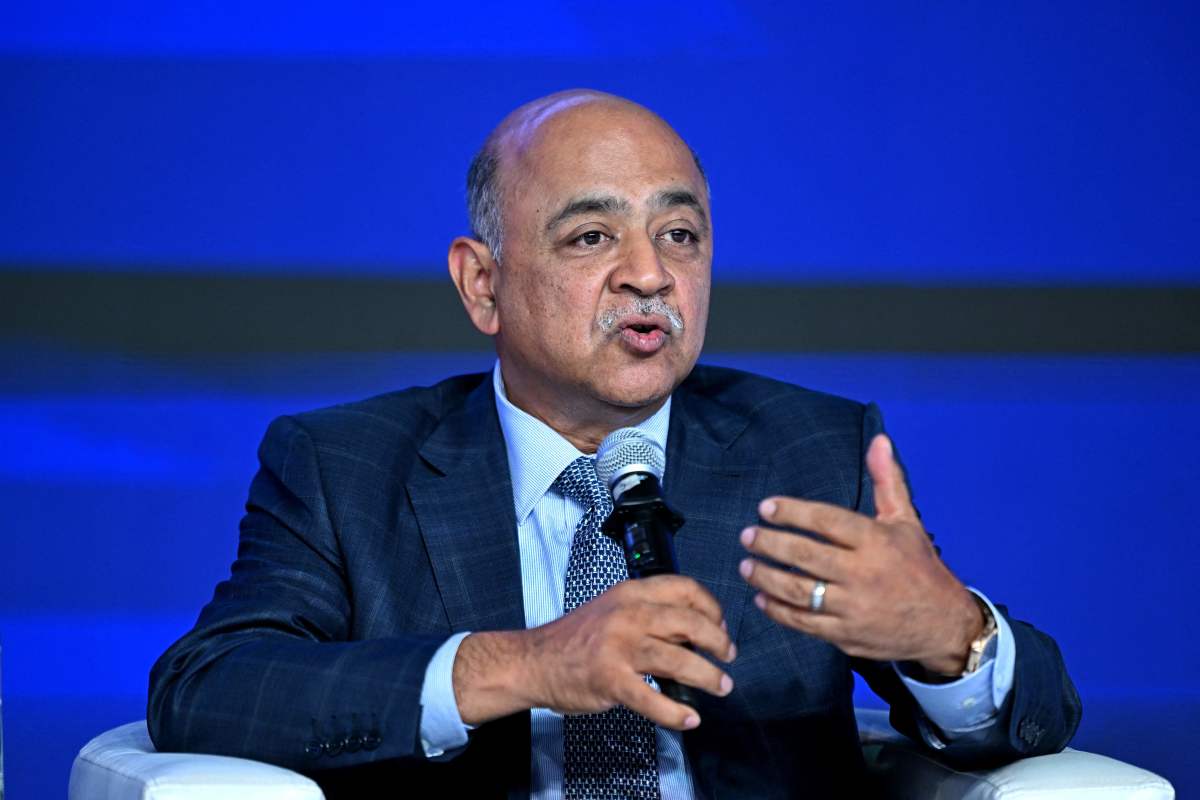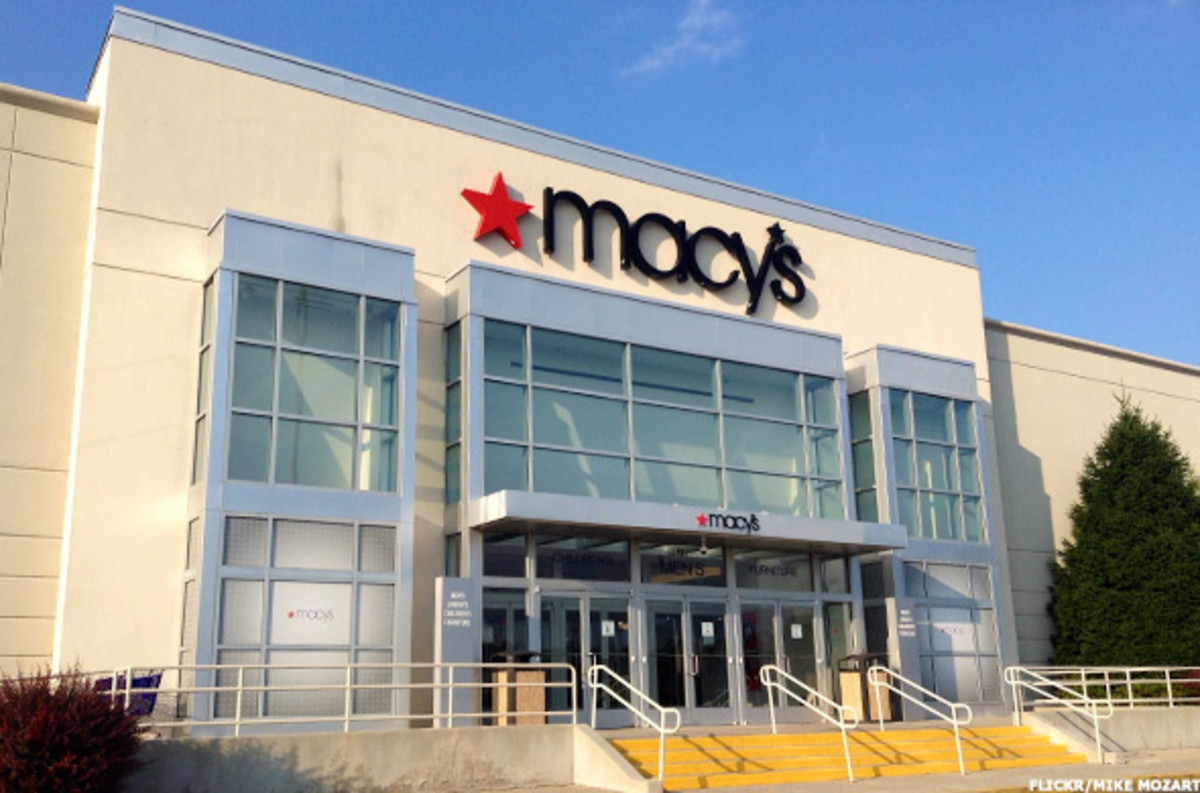Weekly Market Wrap: IBM, Grindr, and Ford
We are now in the second-longest government shutdown era, and its impact can be felt in growing dissatisfaction among furloughed workers, economic instability in regional banks, and increasing uncertainty over back pay. Meanwhile, the stock market remains largely unaffected, and once again, on ...

We are now in the second-longest government shutdown era, and its impact can be felt in growing dissatisfaction among furloughed workers, economic instability in regional banks, and increasing uncertainty over back pay.
Meanwhile, the stock market remains largely unaffected, and once again, on Friday, it closed at its highest level.
- The S&P 500 advanced 1.9% this week, with positive earnings at the core.
- The Nasdaq Composite rose 2.3% over the week, while the Dow Jones Industrial Average, which gained 400 points on Friday, closed 2.2% higher this week.
- The small-cap Russell 2000 benefited from the new CPI report and potential new rate cuts, closing 2.5% higher this week.
The Department of Labor Statistics released the first and only official report during the shutdown on Oct. 24, the Consumer Price Index, which is needed to adjust Social Security benefits and could influence when the Federal Reserve next cuts interest rates.
According to the report, the CPI rose 3% over the past 12 months, slightly below the expected 3.1%, which has led investors to expect a rate cut at the upcoming Federal Reserve meeting on Oct. 29.
Bank of America analysts expect the Fed to deliver a 25bp rate cut to 3.75-4.0% at the FOMC meeting. They also note that they do not expect much guidance beyond the meeting “given the lack of official sector data and the current labor-consumption conundrum.” Hussain/Getty Images
The CPI report noted that a significant factor contributing to the 1.5% increase in energy prices for September was the rise in gasoline prices, which increased by 4.1%. This can mean less travel, fewer meals out, and less spending during the holiday season.
Gold, on the other hand, is now reaping the impact of a moderate economy, with the CBOE Volatility Index at 16.37, down 21% this week.
The Gold price declined 2% this week, marking a drop after rallying continuously in the last quarter.
Oil, which had edged higher earlier in the week due to Russian oil sanctions, closed 0.6% lower on Friday, yet maintained a 6.8% gain during the week.
Trade tensions and US relations with other countries remain an ongoing conversation, after President Trump posted on Truth Social,
ALL TRADE NEGOTIATIONS WITH CANADA ARE HEREBY TERMINATED.
President Doland Trump
Alleging that “Canada is trying to illegally influence the United States Supreme Court in one of the most important rulings in the history of our Country.”
Tariffs, which President Trump believes are the reason “The stock market is stronger than ever.”
This case refers to the Supreme Court’s ruling on the legality of tariffs imposed by President Trump under the International Emergency Economic Powers Act (IEEPA), and oral arguments for which will be heard on Nov. 5.
In other news, earnings and quantum computing played a significant role in influencing the market, with Quantum stocks gaining substantially on reports that the Trump administration might be considering equity stakes in these companies.
Related: Stock Market Today: Nasdaq Composite, S&P 500 Hit Records After Delayed Inflation Report Arrives Softer Than Expected
The Wall Street Journal report, which Howard Lutnick, US Secretary of Commerce, has since denied, was enough to cause shares of IonQ, D-Wave Quantum, and Rigetti Computing to surge on Friday.
Ford emerged as a winner with its earnings, which President Trump credited to tariffs, and its stock went up 12.7% intraday on Friday.
The stock of Grindr, a popular social networking site for the LGBTQ community, rose 18.8% on Friday following news of its going private.
Meanwhile, AMD and IBM stocks mutually benefited, rising 7.6% and 7.9%, respectively, after IBM announced that it could utilize AMD chips to resolve a quantum computing error.
Is Grindr going private?
The stock of this social networking and dating site, exclusive to same-sex couples, soared 18.8% on Friday after news broke that it had been offered a buyout to make it private.
Grindr (GRND), trademarked as the “Global Gayborhood in Your Pocket," will release its Q3 earnings on November 6, ahead of which investor interest is surging, leading to a 16% weekly increase in its stock price.
On Friday, Grindr confirmed that its board received a non-binding, unsolicited take-private proposal from two of its largest shareholders, Ray Zage and James Lu, to acquire it for $18 per share in cash, valuing the app at nearly $3.5 billion.
Zage and Lu currently own more than 60% of the company’s common stock.
Chad Cohen, Special Committee Chair, noted,
The Special Committee, in consultation with its legal and financial advisors, is reviewing the unsolicited take-private proposal and will be evaluating the best path forward for all shareholders.
Ford Q3 reports drive stock surge and analysts' optimism
Ford’s (F) stock rallied sharply, a 12% increase on Friday, which led to a new high of $13.84 for the automobile company.
Following a strong Q3 earnings report that exceeded expectations, Ford’s stock has increased nearly 40% year-to-date.
More Automotive:
- Tesla shareholders respond to latest push against Elon Musk
- Here’s when Ferrari’s first all-electric car will hit the road
- General Motors deals billion-dollar blow to the EV industry
- The latest used and new car buying trends you should know about
Analysts credited the company’s performance to robust results in its Ford Blue and Pro divisions and support from US trade policy shifts.
Bank of America raised its price target to $14.50 from $13.50, citing the “strong” underlying business, which is robust despite a “messy” guidance update, and highlighted a potential path to $8.5-$10 billion in EBIT by 2026.
“The strength of our underlying business was evident in our third quarter results. Adjusting for tariffs, year-over-year adjusted EBIT improved by 0.7 billion. Ford is determined to become higher-growth, higher-margin, more capital efficient, and durable as we deliver great products, software, and physical services to customers around the world,” said Ford CFO Sherry House.
Related: Nissan fuel pumps force second big recall this week
Ford reported a record revenue of $50.5 billion, up 9% year-over-year, while its net income reached $2.4 billion, even after absorbing a $0.7 billion hit from tariffs.
Its operating cash flow in Q3 was $7.4 billion, and adjusted free cash flow was $4.3 billion. It also reported nearly $33 billion in cash and an overall $54 billion in liquidity, underscoring a solid financial picture.
RBC Capital also increased its price target to $12 from $11, maintaining a Sector Perform rating, while continuing to monitor its EV losses, which worsened in Q3, as reported by TheFly.
Quantum Breakthrough fuels stock surge for IBM
IBM shares jumped 7.9% on Friday, adding to its 9% weekly gain after the company confirmed a major quantum computing breakthrough reported by Reuters.
The report notes that IBM can now run a key algorithm on conventional AMD chips, which also resulted in AMD’s stock surging 7.6%. The development eases concerns about near-term scalability for quantum applications and renewed investor confidence in IBM’s technology.
Related: Bank of America revamps IBM stock price after earnings
This is based on a paper that IBM will release on Monday, Oct. 27.
The stock rally also followed the company’s Q3 earnings, which showed strong performance in infrastructure, consulting, and free cash flow but slower growth in Red Hat and Transaction Processing software.
RBC Capital cited this to lower its target on IBM to $300 from $315, while maintaining an Outperform rating. Its analyst noted that while the 2% Red Hat bookings growth was a positive sign for 2026, Q4 may still face consumption-related headwinds, as noted by TheFly.
Even Morgan Stanley lowered its price target to $252 from $256, keeping an Equal Weight rating and saying the Red Hat and TP decelerations were “standing out” and IBM has more work to do to hit 5% plus revenue growth in 2026.
Meanwhile, UBS raised its target to $210 from $200, keeping a Sell rating, noting “key metrics flash caution” into 2026 and that “it is not too early to focus on the puts and take” heading into 2026, as reported by TheFly.
Related: Olive Garden launches bold new offer as restaurant prices surge
What's Your Reaction?




















































